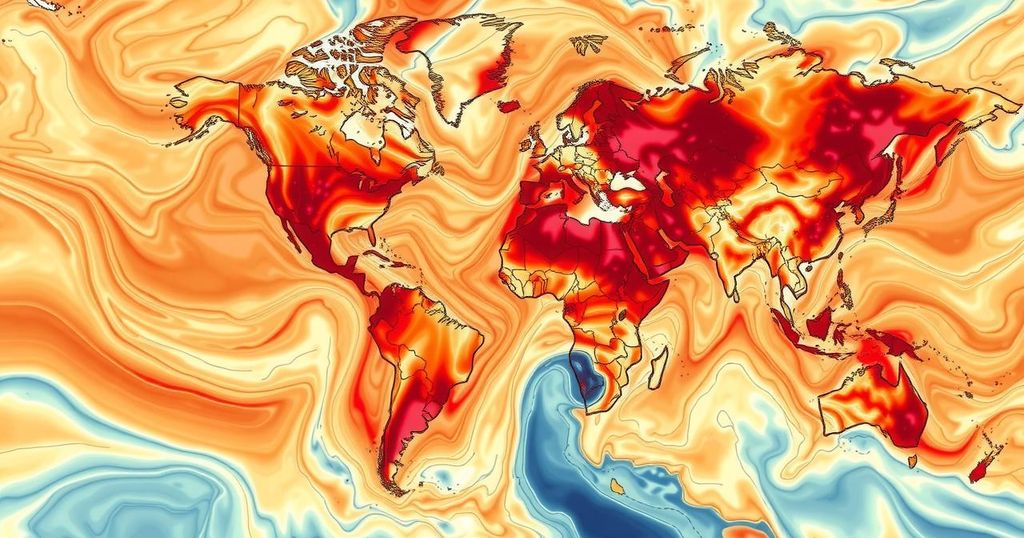Climate Change Leads to 41 Extra Days of Dangerous Heat in 2024
A recent report indicates that climate change has resulted in an average of 41 extra days of dangerous heat globally in 2024, causing over 3,700 deaths and the displacement of millions. The findings call for immediate action on fossil fuel emissions and enhanced strategies to prepare for extreme weather in 2025 and beyond.
A recent analysis conducted by World Weather Attribution (WWA) and Climate Central has revealed that human-induced climate change has contributed to an alarming increase of 41 extra days of dangerous heat globally in 2024. The report highlights the devastating impact of extreme weather events that have resulted in over 3,700 fatalities and the displacement of millions. As the world grapples with the escalating consequences of climate change, the findings underscore the imminent need for a transition away from fossil fuels and the necessity for robust preparations for future extreme weather events occurring in 2025 and beyond.
The report, titled “When Risks Become Reality: Extreme Weather in 2024,” emphasizes that significant changes in weather patterns have been primarily driven by climate change. Out of 29 weather events analyzed, human-induced factors intensified 26, resulting in excessive rainfall, hurricanes, and droughts that have wreaked havoc across various regions. Notably, catastrophic floods in Africa, intensified hurricanes in the US, and severe drought conditions in the Amazon were all linked to climate changes spurred by human actions.
“This year has been the clearest and most devastating demonstration of the impacts of fossil fuel warming,” stated Dr. Friederike Otto, lead of WWA and Senior Lecturer in Climate Science at Imperial College London. The report emphasizes that the additional days of dangerous heat, categorized as temperatures within the top 10% of historical measurements, pose severe health risks to vulnerable populations worldwide.
African nations have been identified as disproportionately affected by these extreme weather conditions, despite being the least responsible for global emissions. As echoed by Joyce Kimutai, a Research Associate at the Centre for Environmental Policy, urgent financial aid is necessary for these nations to adapt and respond effectively to climate challenges. The report has delineated essential strategies for 2025, advocating for a swifter transition to renewable energy solutions, enhancement of early-warning systems, and better reporting of heat-related fatalities.
In summary, it is crucial that global cooperation intensifies in tackling the climate crisis before it escalates further. The findings serve as a clarion call for immediate action; without substantial efforts to reduce fossil fuel emissions, the frequency and severity of intense heat days will only rise, further endangering public health and safety.
The increasing severity of climate change and its impact on weather patterns has become a focal point in scientific discussions. This current report illustrates the stark reality of how human activities, particularly through fossil fuel consumption, have accelerated extreme weather events, leading to substantial humanitarian crises. The need for international cooperation in addressing these challenges is highlighted, particularly in light of the disproportionate effects felt in regions with minimal contributions to emissions.
The findings presented in the report serve as a stark reminder of the consequences of climate change driven by human activity. The additional days of dangerous heat signify not only an environmental crisis but also a looming public health threat. Emphasizing the urgent need for action, the report calls upon global leaders to adopt and implement strategies aimed at mitigating the effects of climate change. As the world continues to confront these challenges, adherence to the proposed resolutions could significantly enhance resilience against future extreme weather events.
Original Source: www.dynamitenews.com




Post Comment